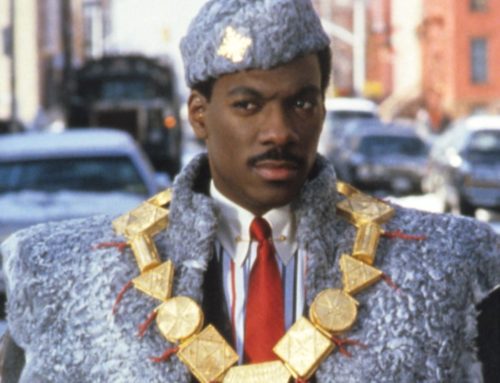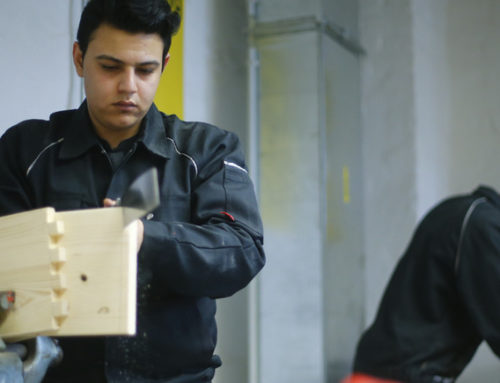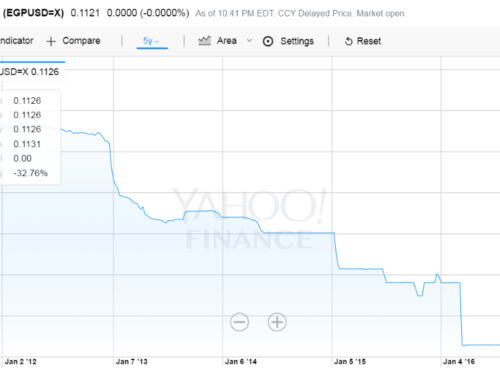Live from Rabat, Morocco! I couldn’t pass on the opportunity to attend a protest (naturally). I wrote this. [Thanks to RB for being a gracious guide to Morocco’s protest movement].
Cross-posted on Foreign Policy Transitions.

RABAT, Morocco – Yegor Talikov, a street musician, was playing his saxophone on the Hotel Balima plaza in Rabat. Some passersby slowed down without stopping, but a few did gather around, occasionally making song requests that the musician was happy to oblige.
The only thing out of the ordinary in this scene was that the audience had to stand a little closer to the musician than usual: A protest was taking place across the street next to parliament, and the music was overshadowed by the loudness of the slogans being chanted: “Dignity, Freedom, Social Justice.” “Revolt, revolt against dictatorship.”
February 20th commemorates the birth of the eponymous protest movement, which saw tens of thousands of Moroccans first take to the streets weeks after demonstrators in Tunisia and Egypt had successfully deposed their dictators. The Moroccans, like their counterparts in other North African countries, demanded more democratic participation, freedom, and social justice.
With a broad, loose coalition of parties and organisations, the movement was alarming enough for the Moroccan government to react. Less than three weeks later, on March 9, 2011, King Mohammed VI gave an address in which he pledged constitutional reforms and “expanded” civil and human rights. These, in turn, gave way to a constitutional amendment referendum that was passed with a large majority.
But this wasn’t enough and the 20 February movement continued. Sort of.
I wasn’t sure what to expect for the anniversary protest. But I did not expect it to be so…small. It consisted of no more than 1,500 people altogether. The protest materialized and dissipated within an hour, when the bulk of protesters left the vicinity of the parliament, leaving only a nucleus of speakers and a slim audience. They, too, didn’t stay on very long.
How did the movement lose so much momentum over the past two years? In effect, it was the outcome of a remarkably intelligent policy by the state to split off the main partners in that loose coalition.
The Islamist Justice and Development Party, unofficially a part of the movement, pulled out as it deemed itself satisfied with the reforms suggested by the King and voted in favor of the constitutional amendment referendum. The Amazigh Cultural Movement pulled out when Tamazight, the Amazigh national language, was recognized as an official language in the July 2011 constitutional reform. (The Amazigh, meaning “Free Man”, are an ethnic group indigenous to North Africa.) And Al adl wal Ihsane, an Islamic organization, also pulled out when the Justice and Development party rose to power in the November 2011 elections. Their election signaled a sign of real and gradual change, prompting many supporters of the protest movement to withdraw from the streets.
The bulk of what remains is, in effect, the Socialist Coalition, composed a few leftist parties with limited popular appear on the ground, as well as a variety of independent activists.
Two other factors might have contributed to the weak turnout on February 20. The first is that the date also marks the anniversary of the death of the previous monarch, King Hassan II. As a result, as the protesters set off to parliament, King Mohammed VI was paying tribute to his father at the nearby mausoleum, thereby drawing away much of the public and media attention. The second is the state of disarray in which many post-Arab-Spring countries find themselves — hardly a motivating model for Moroccans or forging a path they might want to follow.
In any event, the February 20th movement is vowing to carry on, denouncing the minimal reforms enacted in 2011 as largely insufficient. As the movement shrinks to a core of like-minded supporters, it is able to formulate increasingly focused and antagonistic attitudes toward the “Makhzen,” a term that refers to the presumptive “Deep State,” centered around the King and his entourage, that controls the ruling apparatus beyond the elected government.
But perhaps such points are irrelevant. The February 20th protest was below expectations, and it correspondingly weakened the movement. But it remains an important opposition force, if only in the eyes of the government: activists are still being arrested and tortured by the Moroccan police.
If the protest movement wants those passersby to join in rather than requesting their favorite songs, it will have to do a significantly better job of rebranding itself and reaching out to the public as an inclusive movement as opposed to a niche one.



